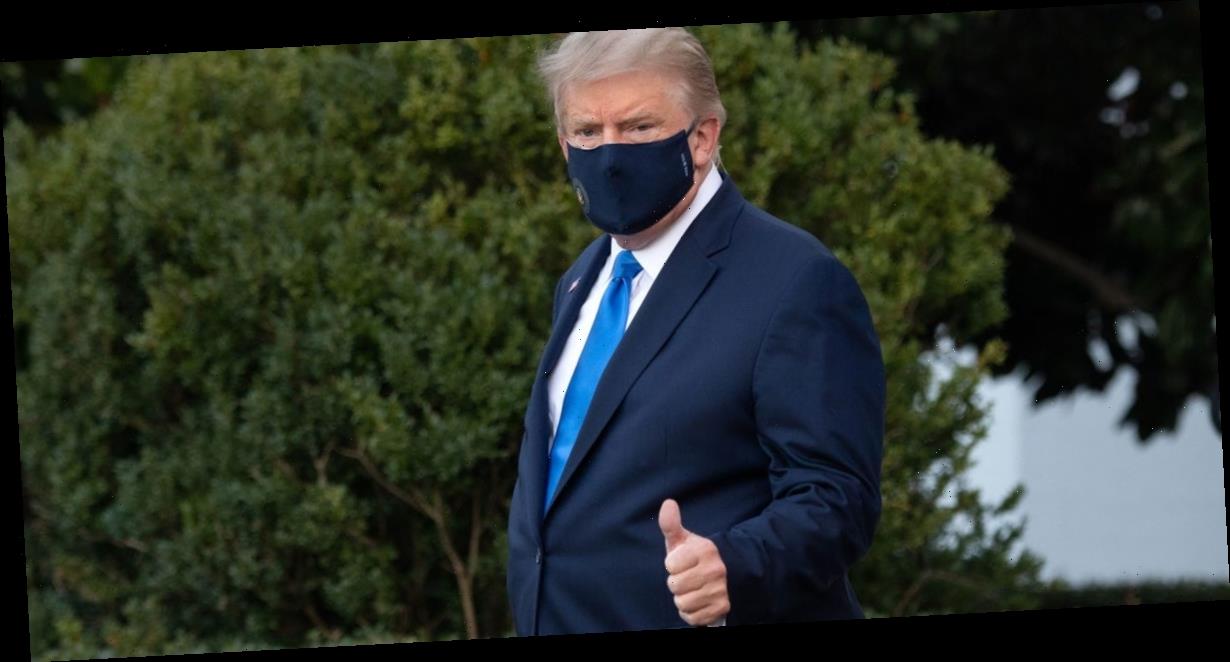- A treatment used on President Donald Trump after his coronavirus diagnosis was developed with testing that used cells that originally came from an abortion.
- The Trump administration has tried to restrict the use of such cells, though it's common practice in the development of treatments for diseases like cancer, HIV, and birth defects.
- Regeneron, the company that made the antibody cocktail used by Trump, told the MIT Technology Review reported that it used HEK293T cells, which are a line of cells that have been divided and used by scientists by decades.
- The Technology Review reported that the HEK293T cells originally came from a fetus aborted in the Netherlands in the 1970s.
- But so much time has passed, and the cells have divided so much, that scientists no longer consider them as involving abortion, with a Regeneron spokeswoman saying the cell lines available today "are not considered fetal tissue."
- A spokesperson told Business Insider "HEK293T are immortalized epithelial cells, not stem cells, embryonic stem cells or fetal tissue." The company says it did not use any human-derived cells to make its treatment.
- Visit Business Insider's homepage for more stories.
One of the treatments used on President Donald Trump after he was diagnosed with COVID-19 was developed using testing with cells that originally came from an abortion, a common process that the Trump administration has tried to restrict.
The treatment involved an experimental antibody cocktail made by American biotech company Regeneron. The company confirmed to the MIT Technology Review that its testing process involved using cells that were originally obtained from an aborted fetus, though those cells were not used when making its treatment.
Trump announced his coronavirus diagnosis on Friday, and spent three nights at Walter Reed National Military Medical Center, where he received supplemental oxygen, a steroid typically used on severe cases, and the experimental antibody cocktail.
In a video from the hospital, Trump called the treatments he was getting — which the average person does not have access to — "miracles coming down from God."
And when Trump, still infected, returned to the White House on Monday, he claimed he felt better than he had in 20 years and that the virus — which has now killed more than 211,000 people in the US — is not something people should be afraid of.
Read more: Trump got Regeneron's experimental antibody drug for his coronavirus symptoms. Here's what you need to know about the treatment.
Except those antibodies he took came from a process his administration has opposed.
Testing for the experimental antibody cocktail used a supply of cells called HEK293T, which originally derive from the kidney tissue from an abortion that took place in the Netherlands in the 1970s, MIT Technology Review's Antonio Regalado reported.
The publication Science also reported that Regeneron "did develop that treatment with the help of a long-lived line of cells established from the kidneys of a fetus electively aborted in the Netherlands around 1972."
For scientists, those cells are no longer considered to be fetal cells, because they were derived so long ago and, as the Technology Review noted, they have kept dividing in the laboratory and have changed.
The HEK293T cells have been divided and widely used by scientists for decades.
Alexandra Bowie, a spokeswoman for Regeneron, told the Technology Review that the cells are no longer considered to be fetal tissue by scientists.
"It's how you want to parse it," she said.
"But the 293T cell lines available today are not considered fetal tissue, and we did not otherwise use fetal tissue."
And a Regeneron spokesperson told Business Insider that "HEK293T are immortalized epithelial cells, not stem cells, embryonic stem cells or fetal tissue."
The company told the Technology Review that it made antibodies in a different way: using cells that come from hamsters' ovaries. Science also reported that Regeneron made its antibodies using nonfetal cells.
Trump has cracked down on the common process
As the Technology Review noted, those picking Trump's treatment were unlikely to be unaware of the specifics of how the drugs were tested, given that it is so common across the industry that it is not necessarily clearly disclosed as part of the drug-making process.
However, the Trump administration has tried to restrict this kind of practice — which scientists say is needed to find treatment for illnesses like HIV, cancer, birth defects, Alzheimer's, and the coronavirus.
In 2018, the administration restricted government researchers from using tissue from abortions as part of their work.
One researcher with the National Institutes of Health warned at the time that "this effectively stops all of our research to discover a cure for HIV." Other researchers also warned that it was harming cancer treatment research.
However, the move was welcomed by pro-life groups.
Researchers use fetal tissue, often donated by women who have had abortions, to find lifesaving treatments.
Scientists around the world have been doing so for decades, and they say that there is no substitute material they can use to try and discover such treatments.
In March, a senior NIH immunologist told The Washington Post that the administration's restrictions had interfered with his efforts to study possible coronavirus treatments.
Regeneron has asked the Food and Drugs Administration for emergency approval of its antibody cocktail.
Trump reportedly returned to work in the Oval Office on Wednesday, despite still being contagious. At least 34 people close to the White House have tested positive for COVID-19, and White House staffers are saying that they are afraid to go back to work.
Do you have a personal experience with the coronavirus you’d like to share? Or a tip on how your town or community is handling the pandemic? Please email [email protected] and tell us your story.
Get the latest coronavirus business & economic impact analysis from Business Insider Intelligence on how COVID-19 is affecting industries.
Source: Read Full Article
